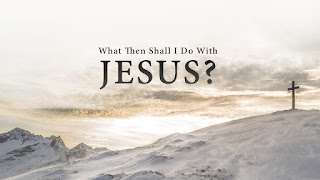God, our 'sanctuary'
In the book of Ezekiel, the prophet is tasked with receiving visions of the destruction of the Israelite people at the allowance of God for their ongoing sin and refusal to repent. God had given the people ample opportunity to repent and come back to Him before sure judgment and destruction came upon then, but they refused to listen and humble themselves. Pride has a way of doing that...
In the midst of all this, Ezekiel wondered if God was going to honor His promise of sustaining the people, even through the impending judgment via the Babylonian captivity. God answered in the affirmative, however it would only be a 'remnant' (Webster's: 'a small remaining quantity'). The majority of the unfaithful Israelites would not make it out of this judgment alive.
Ezekiel 11:16 is a small but significant verse in this narrative. God states to Ezekiel, "Although I have cast them far off among the Gentiles, and although I have scattered them among the countries, yet I shall be a little sanctuary for them in the countries where they have gone."
What did God mean by this? Even in the midst of the judgment, even in the midst of all the tragedy and loss that would come upon the people for their sins, including the destruction of God's temple, God Himself would remain with His people (He would not abandon them) and He would be their source of protection, security, and strength in the trying times ahead. Dr. John Macarthur comments here, "The exiles may have cast off the Jews, but God had not. This holds true to the future restoration of the Jews."
In the midst of calamity and utter destruction, even if it is for the reason of punishment for continued sin and rebellion, God is always with His people. He never abandons His children, even though, many times, His children abandon Him. He is the ultimate Faithful Father. He is the Great Sustainer. He is 'our sanctuary.'
Reader, believer, remember this truth as you face various trials in this life. God is always there.
He hears you.
He sees you.
He cares for you (1 Peter 5:7).
In the midst of all this, Ezekiel wondered if God was going to honor His promise of sustaining the people, even through the impending judgment via the Babylonian captivity. God answered in the affirmative, however it would only be a 'remnant' (Webster's: 'a small remaining quantity'). The majority of the unfaithful Israelites would not make it out of this judgment alive.
Ezekiel 11:16 is a small but significant verse in this narrative. God states to Ezekiel, "Although I have cast them far off among the Gentiles, and although I have scattered them among the countries, yet I shall be a little sanctuary for them in the countries where they have gone."
What did God mean by this? Even in the midst of the judgment, even in the midst of all the tragedy and loss that would come upon the people for their sins, including the destruction of God's temple, God Himself would remain with His people (He would not abandon them) and He would be their source of protection, security, and strength in the trying times ahead. Dr. John Macarthur comments here, "The exiles may have cast off the Jews, but God had not. This holds true to the future restoration of the Jews."
In the midst of calamity and utter destruction, even if it is for the reason of punishment for continued sin and rebellion, God is always with His people. He never abandons His children, even though, many times, His children abandon Him. He is the ultimate Faithful Father. He is the Great Sustainer. He is 'our sanctuary.'
Reader, believer, remember this truth as you face various trials in this life. God is always there.
He hears you.
He sees you.
He cares for you (1 Peter 5:7).



Comments
Post a Comment